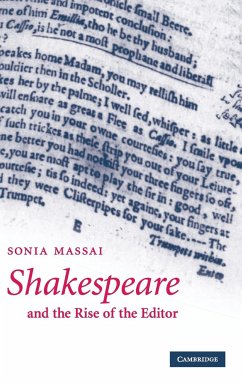Sonia Massai’s central claim in this book is that the texts of early printed editions of Renaissance drama, including Shakespeare’s, did not simply ‘degenerate’ or ‘corrupt’ over time, as subsequent editions were printed using the immediate predecessor as their basis. By focusing on early correctors of dramatic texts for the press, this book identifies a previously overlooked category of textual agents involved in the process of their transmission into print. Massai also challenges the common assumption that the first editor of Shakespeare was Nicholas Rowe, who published his edition of Shakespeare’s Works in 1709. The study offers a ‘prehistory’ of editing from the rise of English drama in print at the beginning of the sixteenth century to the official rise of the editorial tradition of Shakespeare at the beginning of the eighteenth century.








